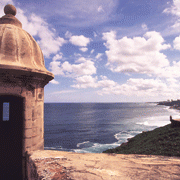Sun, sea and sand are just a few of the allures, but what are the obstacles to hosting an off-shore meeting? Certainly forethought is required, but Caribbean and U.S. island destinations are not as prohibitive in cost and accessibility as one might think.
“The challenges in organizing off-shore meetings are somewhat similar to organizing a meeting in the mainland U.S.,” says Joel B. Grossman, president of Tourism Solution, a consulting company that provides sales and marketing expertise to hotels and tourist destinations worldwide.
“The cost of hosting a group at a Caribbean property is comparable to hosting one in the U.S.,” he says. “However, airfares may be a bit higher when flying to the Caribbean and there may be the additional cost of duty for bringing items into the destination, and that could increase costs.”
Tax Incentive
That said, most of the islands in the Caribbean are part of the Caribbean Basin Initiative that gives tax-free status to off-shore meetings.
Marcia Bullock, regional director of groups and conventions for the Jamaica Tourist Board, notes that Jamaica was the first Caribbean island to implement the tax deduction, which has been a policy since 1981. According to Bullock, the deductions do not apply to incentive travel, which comprises much of Jamaica’s group business.
“The majority of our business is incentives, but in today’s environment, since a straight incentive won’t qualify for the tax incentive, groups combine it with a meeting,” she says. “They still do the incentive part in the afternoon, and it allows the corporation to be tax deductible.”
Grossman concurs that the incentive market is vital to the Caribbean, since many hotels that do not have the meeting space for conferences can accommodate incentive travel groups.
“Since these groups are made up of salespeople that have excelled in their field, they are great to have at a resort and there is good potential they will come back on their own,” he says. “The fastest growing segment of the incentive industry is the individual incentive. Many companies do not want all of their salespeople away for a week. These rewards have become popular for non-sales activities so that companies can utilize them for all departments.”
Offshore Challenges
For Bullock, Jamaica’s leisure qualities can be the drawback in attracting groups.
“The challenge is being able to convince people they can have a successful meeting in a resort setting,” Bullock says. “Those groups who have not been to a resort setting are hesitant. Their concern is being able to have a serious meeting without too many distractions. We tell them we do have the facilities and can structure their meeting properly. Another thing that works well for us are site inspections. We found once we get the planner to Jamaica and show them what we have to offer, it’s a done deal.”
Accessibility can also be a drawback for Caribbean destinations, some more than others.
“Airlift can be a concern as you must make certain that there is an airline flying out of the major gateway cities of the attendees,” Grossman says.
While Jamaica is well connected, places further afoot pose more challenges. Trinidad and Tobago, the southern most in the Caribbean chain, face airfare and connectivity obstacles.
“The biggest challenge is the distance,” says Charlaine Montano, director of sales for the Hyatt Regency, which opened in Trinidad in early 2008. “We’re still relatively unknown in the U.S. market. That’s another challenge for us.”
On the plus side, Trinidad and Tobago are far enough to be out of the hurricane zone. Its dual-island status is also a boost.
“We are two islands, which is unique,” Montano says. “Trinidad is a very culturally mixed island. Our population is predominantly African and Indian; then there are Chinese and Middle Eastern people. Each lends to a rich cultural heritage. You can go to Tobago by ferry, which is a nice trip over.”
Though islands with large, meetings-friendly hotels, such as the Bahamas, Dominican Republic, Puerto Rico, and Jamaica, have more experience in hosting conferences, incentives can find what they need in some of the less-frequented spots.
“With respect to incentive travel, any destination that offers a five star product and service is of interest,” Grossman says.
A relatively new factor organizing Caribbean-based meetings is the passport requirement that went into effect last year.
“Being a U.S. destination has a big advantage,” says Judi Nagelberg, president and founder of Island Meetings & Incentives, a DMC based in the U.S. Virgin Islands.
A few benefits, according to Nagelberg, include payment in the American dollar, easy shipping and no passport requirement unless groups decide to make the day trip to any of the British Virgin Islands.
Nagelberg does have to deal with a few offshore inconveniences.
“Sometimes our resources are limited,” she says. “We don’t have the shopping ability [the mainland has]. Like today, I was out with clients and they wanted to augment something for their event. You can’t go to Bed Bath and Beyond and pick it up.”
Those challenges are diminishing as the Caribbean becomes more cosmopolitan, according to Nagelberg, though there is still the issue of “island time.”
“People have the sense everything is manana,” she says. “We have always had the philosophy to run like a stateside company.”
Nagelberg can set up team-building options like beach scrabble, as well as sailing trips and community projects, among other options.
Close to Home
For groups seeking an island feel sans the travel time, they will find resort-style locations all along the Atlantic seaboard.
Golf, tennis, horseback riding, boating, and fishing are just some options at Sea Island, one of the barrier islands comprising the Golden Isles of Georgia. Sea Island is home to the famous resort The Cloister, which offers spa amenities and the feel of a truly remote destination.
Hilton Head Resort, off the coast of South Carolina and 20 miles north of Savannah, stakes its claim as the Pebble Beach of the East Coast.
“What we try to push is the convenience of our location and direct air service to Savannah,” says Jack Reed, director of sales for the Hilton Head Island CVB. There are also easy connections via Atlanta and Charlotte, N.C.
Hilton Head also offers cultural pursuits, including live theater at the Arts Center of Coastal Carolina, performances by the Hilton Head Choral Society and Hilton Head Symphony Orchestra, as well as wine tasting and other community events.
Though closer to home, Hilton Head manages to buffer its guests from the pace of a big city.
“Once you are on the island, we don’t believe in street lights, all businesses are set back off roads, there is a buffer of trees, no neon, and we don’t pollute the sky with a lot of lights,” Reed says.
Even more remote, groups can take the ferry to Daufuskie Island Resort, which features two golf courses, horseback riding and a 50-room inn.







